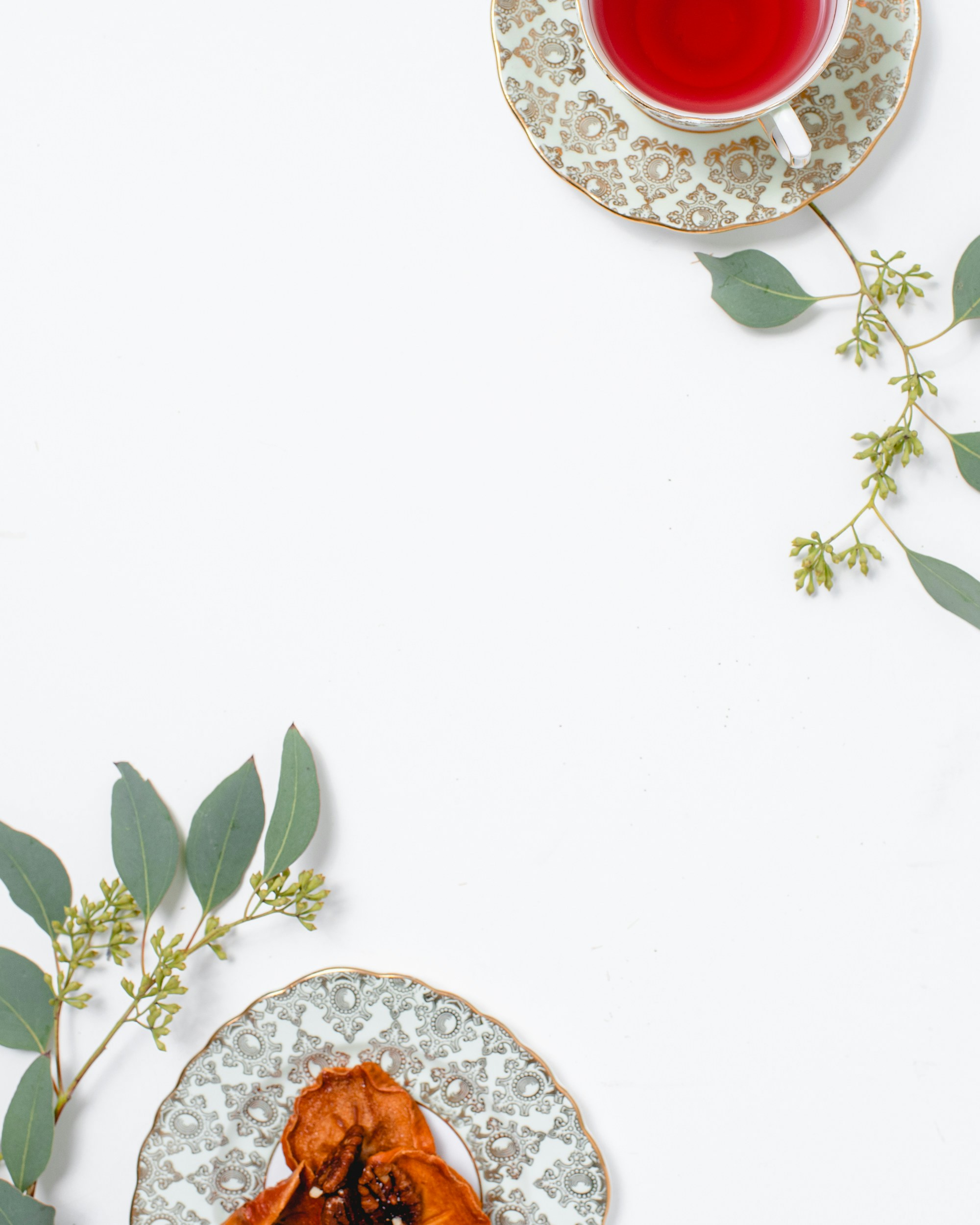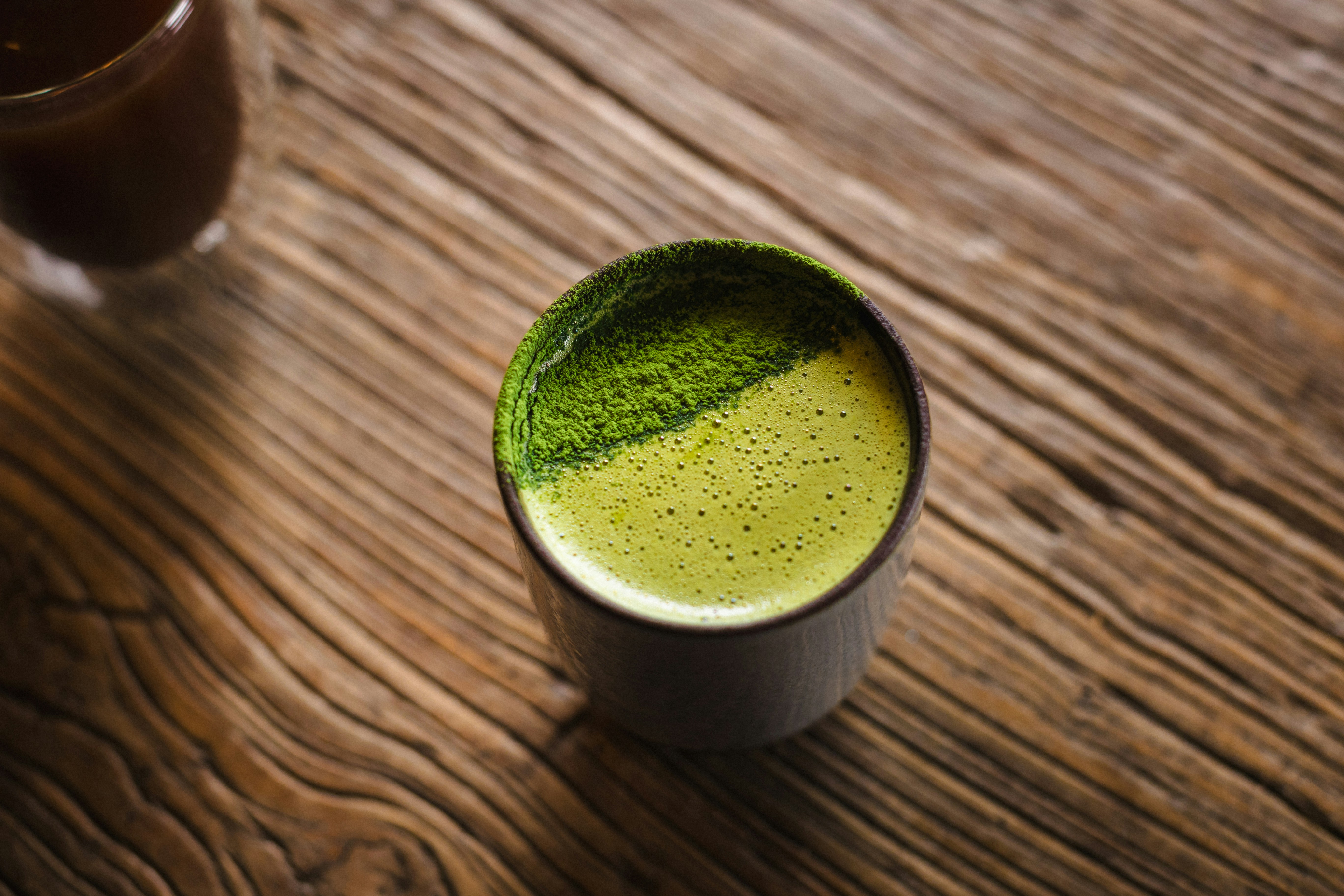Introduction: Discovering the Power of Herbal Tea
In recent years, herbal tea has gained significant popularity as a beverage that not only pleases the palate but also plays a crucial role in enhancing emotional and mental well-being. This captivating category of tea encompasses a diverse array of ingredients, including herbs, flowers, and spices, each contributing unique flavors and potential health benefits. With the growing awareness of holistic health, many individuals have turned to herbal tea as a comforting and gentle remedy for stress, anxiety, and other emotional challenges.
Culturally, herbal tea has been celebrated across various traditions for centuries. In Asian cultures, for instance, chamomile and ginger teas are cherished for their calming properties, while in Western societies, peppermint and lavender are commonly used to promote relaxation. Each culture has its own recipes and rituals surrounding herbal tea, signifying its importance in collective understanding and practice related to health and mindfulness.
Many individuals have shared personal stories that highlight the transformative impact of herbal tea on their daily lives. For example, some people have found solace in a warm cup of chamomile tea after a long day, noting how the gentle warmth and fragrant aroma provide a moment of peace amidst chaos. Others have discovered that sipping on peppermint tea during stressful periods helps them regain clarity and focus. Such anecdotes resonate with others who seek comfort and clarity through similar means, further emphasizing the connection between herbal tea consumption and emotional well-being.
The exploration of herbal tea is not merely about the different recipes or health benefits; it delves into how these blends create an atmosphere of tranquility and mindfulness. As the journey into the world of herbal teas unfolds, one may uncover both the psychological and physiological effects that these botanical brews exert on the mind and spirit.
The Science Behind Herbal Tea and Mood Enhancement
Herbal tea has gained recognition not only for its delightful flavors but also for its potential impact on mood and mental well-being. The underlying science suggests that various active compounds present in herbal teas may play a significant role in influencing neurotransmitters and hormonal balance. For instance, l-theanine, predominantly found in green tea, has been widely studied for its calming effects. Research indicates that this amino acid promotes relaxation without sedation, thereby enhancing overall mood and cognitive function. It is believed that l-theanine increases levels of serotonin and dopamine, key neurotransmitters involved in mood regulation.
Another prominent example is chamomile tea, which has been traditionally used for its calming properties. Clinical studies have demonstrated that chamomile can significantly reduce symptoms of anxiety and depression. The active compound in chamomile, apigenin, binds to specific receptors in the brain, contributing to its soothing effects. This biochemical interaction aids in the promotion of sleep and relaxation, further enhancing mood stability.
Additionally, herbal teas such as peppermint and lavender are noted for their uplifting qualities, often utilized in aromatherapy for stress relief. These herbs contain a variety of bioactive compounds that stimulate the production of endorphins, enhancing feelings of happiness and overall mental well-being.
Moreover, the ritual of drinking herbal tea can itself have a positive effect on mood. Engaging in mindful practices like preparing and savoring a cup of tea can result in a temporary respite from daily stresses, promoting emotional balance. While individual responses to herbal tea may vary based on personal biochemistry and lifestyle, the cumulative evidence points towards a notable relationship between herbal tea consumption and improved mood. Thus, incorporating herbal tea into one’s daily routine could serve as a natural, holistic approach to enhancing emotional health.
Nurturing Rituals: How Tea Preparation Affects Well-Being
The process of preparing herbal tea is more than just a means to an end; it is a nurturing ritual that can significantly enhance emotional wellness. Engaging in this mindful practice allows individuals to connect with themselves and their surroundings, fostering a state of relaxation and presence. The act of tea preparation involves several steps that can contribute to mental clarity and emotional balance.
To begin, choose an herbal tea that resonates with your emotions or needs. Consider calming options such as chamomile for relaxation or peppermint for rejuvenation. Boil fresh, filtered water and allow it to cool slightly before pouring it over the tea leaves or bags. This simple yet intentional selection process sets the stage for a mindful experience.
As you watch the tea steep, take a moment to breathe deeply. Inhale the soothing aroma that begins to fill the air. This is a critical part of the ritual, as focusing on your breath and the sensory experiences around you invites mindfulness into the process. Allow yourself to be present at that moment, appreciating the colors of the tea as it infuses and the warmth of the cup in your hands.
Once the tea is ready, partake in the next step—sipping slowly. This act should not be hurried; instead, let each sip guide you into deeper reflection. Many find that this time dedicated to tea can help clear a cluttered mind, promoting mental clarity and emotional equilibrium. Personal testimonials often illustrate how individuals have found solace in this ritual, describing the tranquility and clarity they experience during their tea preparation.
In nurturing a habit of brewing tea, individuals cultivate a cherished moment in their day, enhancing their emotional well-being while tapping into the meditative aspects of this time-honored practice. The benefits of such rituals extend far beyond the enjoyment of a warm beverage, influencing overall mood and mental health.
Herbal Tea Varieties: Finding Your Perfect Blend for Mood Support
Herbal tea has gained recognition not only for its delightful flavors but also for its potential mood-enhancing properties. Various herbal tea varieties can help support mental well-being, providing a perfect solution for those seeking to improve their mood through natural means. Among the most popular options are lavender, peppermint, and lemon balm, each offering unique benefits and ideal scenarios for consumption.
Lavender tea is often celebrated for its calming aroma and soothing effects. Known to reduce anxiety and promote relaxation, lavender tea is particularly effective when consumed in the evening, preparing the mind and body for a restful night. Many individuals have shared anecdotes about how sipping lavender tea while reading a book or practicing mindfulness has significantly improved their nighttime routine.
Peppermint tea, on the other hand, is invigorating and refreshing. Its uplifting scent can revitalize the senses, making it an excellent choice for those experiencing fatigue or fogginess. Consuming peppermint tea during a mid-afternoon slump can serve as a natural pick-me-up, helping to clear the mind and boost focus. Numerous users have noted that integrating peppermint tea into their daily rituals has helped them maintain productivity while simultaneously enhancing their mood.
Another noteworthy option is lemon balm tea, a member of the mint family known for its mild sedative effects. This herbal infusion is recognized for its ability to ease stress and promote a sense of tranquility. Many people find themselves enjoying lemon balm tea during stressful workdays, as it provides a moment of reprieve amidst chaos. Anecdotal evidence supports the notion that those who incorporate lemon balm into their routine report greater emotional balance and overall well-being.
Exploring these herbal tea varieties can lead individuals to discover their perfect blend for mood support. By experimenting with different options such as lavender, peppermint, and lemon balm, one might just find the ideal brew that aligns with their needs and preferences.
Cultural Practices: The Spiritual Side of Herbal Tea
Herbal tea has long been cherished not only for its diverse flavors and health benefits but also for its spiritual significance in various cultures around the world. In many societies, the practice of consuming herbal tea transcends mere physical nourishment, becoming a ritual that fosters a deep emotional connection with nature and oneself. The calming tea ceremonies in Japan exemplify this beautifully. These ceremonies, known as “Chanoyu,” highlight the importance of mindfulness and tranquility, where each element of the tea-making process is infused with intention and reverence.
Participants engage in a meditative practice that promotes serenity, allowing them to reflect on nature’s beauty and the present moment. Similarly, in Native American traditions, herbal infusions are integral to spiritual rituals, used to purify the mind and body. Herbs such as sage and cedar, often brewed into teas, are employed for their cleansing properties and to facilitate deeper connection with spiritual entities. These practices underscore the belief that herbal tea can serve as a conduit for emotional healing and existential reflection.
Across various cultures, the act of brewing and consuming herbal tea is seen as an opportunity for interconnection—both socially and spiritually. In some African communities, shared tea rituals foster communal bonds, providing a space for storytelling and emotional expression. In Western wellness practices, herbal teas are increasingly integrated into yoga and meditation sessions, reinforcing the notion that these beverages support both mental clarity and relaxation.
Encouraging readers to explore their own spiritual connection with herbal tea invites a personal journey. By engaging in mindful preparation and consumption, individuals can discover the emotional and meditative benefits that these herbal infusions uniquely provide. Each cup of herbal tea offers a moment to pause, reflect, and nourish not just the body but the spirit as well.
Tea and Stress: Calming the Mind and Body
Herbal teas have long been revered for their calming effects, particularly in managing stress and anxiety. The ritual of sipping a soothing cup of tea can create a moment of tranquility, allowing individuals to step away from the chaos of daily life. Various herbal teas, such as chamomile, lavender, and passionflower, are often recognized for their stress-relieving properties. These botanicals can help to lower cortisol levels, hence aiding in effective anxiety management.
Many individuals have shared personal experiences illustrating how herbal teas assist in combating stress. For instance, one individual recounted how chamomile tea became a nightly ritual following a particularly taxing day at work. The warm, aromatic brew provided not just a physical warmth, but a calming effect, promoting relaxation and restful sleep. Similarly, another individual found solace in lavender tea during stressful times leading up to exams. The soothing aroma and taste helped to ease the tension and foster a sense of peace, demonstrating how simple acts of self-care can significantly influence mental well-being.
Creating the right environment for tea time can enhance its calming effects. It’s recommended to carve out a specific moment each day dedicated to this practice. Consider dimming the lights, playing soft instrumental music, or engaging in deep breathing exercises while enjoying your tea. The simple act of focusing on the aroma and flavors can shift the mind away from stress and anxiety. Additionally, incorporating mindful practices, such as gratitude journaling during tea time, can further elevate the therapeutic experience. Making this a routine can significantly contribute to mental well-being, emphasizing how herbal teas are effective allies in the journey toward stress reduction.
Connecting with Nature: Herbal Tea as a Mindfulness Practice
Herbal tea serves as more than just a soothing beverage; it can be a profound bridge to nature. When individuals engage with herbal tea, they are not only enjoying its myriad flavors but also connecting with the organic ingredients derived from the earth. The significance of selecting organic and sustainably sourced herbs cannot be overstated, as this choice directly correlates with environmental health and our overall well-being. By choosing herbal teas that prioritize eco-friendliness, consumers can appreciate the pristine origins of their tea, fostering a deeper connection to the natural world.
The act of drinking herbal tea can transform into a mindfulness practice, offering a moment of tranquility amidst the chaos of daily life. When one chooses to sip tea in solitude or in a natural setting, such as a garden or park, it becomes an opportunity for reflection and grounding. The ritualistic process of preparing and consuming herbal tea encourages individuals to slow down and savor each moment, enhancing mindfulness. This simple act helps to cultivate awareness, allowing one to engage more fully with the present, thus potentially elevating mood and enhancing mental clarity.
Additionally, observing the beauty of nature while enjoying herbal tea can intensify the emotional benefits. Nature has a unique ability to inspire feelings of peace and contentment, which in turn may amplify the therapeutic properties of herbal tea. Studies have shown that being in touch with nature can help reduce stress and improve mental health, making the combination of herbal tea and natural surroundings particularly potent. In doing so, individuals may find that their overall sense of well-being is significantly enhanced, making the experience of drinking herbal tea a truly holistic one.
Personal Stories: Transformation Through Tea
The journey to emotional well-being can often take unexpected turns, as demonstrated through the stories of individuals who have found solace in herbal tea. One such account comes from Sarah, a busy mother of three who struggled with anxiety and fatigue. After incorporating chamomile and peppermint tea into her daily routine, she discovered a marked improvement in her ability to manage stress. “I never realized how much a simple cup of tea could change my day,” Sarah explained. The soothing properties of chamomile helped her feel more relaxed, allowing for clearer thinking and a calmer demeanor, ultimately transforming her home environment.
Similarly, Michael, a graduate student battling the pressures of academic life, turned to herbal tea as an alternative to caffeine-laden beverages. Initially skeptical, he began with a blend of lemongrass and ginger. “Not only did I enjoy the taste, but I also noticed a better focus on my studies and a lift in my mood,” he recounted. The calming effects of herbal ingredients helped him concentrate while also elevating his mindset, making long study sessions feel more manageable and less overwhelming.
In another refreshing account, Lisa shared how dandelion root tea played a pivotal role in her emotional recovery following a difficult period in her life. “It’s a part of my ritual now; every morning starts with a cup,” she stated. The detoxifying properties of dandelion tea provided her not only with physical revitalization but also mental clarity. Lisa felt empowered with each sip, which reinforced her commitment to self-care. These transformative stories highlight the profound impact herbal teas can have, illuminating how simple changes can lead to significant emotional uplift. These personal narratives inspire readers to explore the mood-enhancing potential of herbal tea in their own lives.
Conclusion: Brewing Your Journey to Well-Being
As we reach the end of our exploration into the remarkable effects of herbal tea on mood and mind, it is clear that this centuries-old beverage offers more than just a comforting drink. The diverse range of herbal blends not only provides delightful flavors but also embodies a plethora of health benefits that can significantly enhance emotional and psychological well-being. From chamomile’s soothing properties to the invigorating effects of peppermint, each cup presents an opportunity to elevate our state of mind.
Herbal tea serves as a bridge between relaxation and vitality, allowing individuals to navigate the complexities of daily life. The mindful ritual of preparing and enjoying a cup can pave the way for self-reflection and intentionality, reinforcing the idea that mental health is intertwined with our everyday practices. Incorporating herbal teas into our routines presents a simple yet powerful method for fostering a positive mindset.
As you consider your own tea-drinking habits, take a moment to reflect on which blends resonate with your personal experiences and emotions. Perhaps you have a favorite herbal tea that has guided you through stressful times or one that has invigorated your spirit during quiet moments. Expanding your herbal repertoire by trying out new varieties or preparing your tea in unique ways may lead to delightful discoveries, enhancing not only your palate but also your overall mental clarity and well-being.
We invite you to share your own experiences with herbal tea in the comments. Engaging in this dialogue can foster a vibrant community of tea enthusiasts who are eager to explore and learn together. Each shared story contributes to a richer understanding of how this ancient beverage influences our lives, revealing the surprising connections between nature, well-being, and our shared humanity.







Leave a Reply